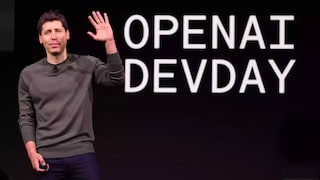Sam Altman, CEO of OpenAI and a leading figure in the advancement of artificial intelligence (AI), is now setting his sights on a monumental endeavour: raising trillions of dollars to revolutionize the global semiconductor industry. Reports indicate that Altman is actively engaging with potential investors, including the government of the United Arab Emirates (UAE), in pursuit of funding for this ambitious initiative.
The proposed project aims to address critical constraints hindering OpenAI’s growth, particularly the scarcity of specialized computer chips essential for training advanced AI models like ChatGPT. Altman has repeatedly voiced concerns over the limited availability of these chips, known as graphics processing units (GPUs), which are vital for realizing artificial general intelligence — systems surpassing human intelligence.
The envisioned initiative encompasses a broad spectrum of objectives, including the expansion of global chip manufacturing capacity and enhancing capabilities to support AI development. Estimates suggest that the project’s scale could necessitate an unprecedented investment ranging from $5 trillion to $7 trillion, significantly surpassing the current size of the semiconductor industry.
Related Articles
Altman’s ambitious plan faces significant obstacles, but it represents a bold attempt to reshape the semiconductor landscape and address critical bottlenecks in technological innovation.
The fundraising talks mark the latest in a series of ambitious endeavours by Altman to enact transformative change. Apart from spearheading the generative AI revolution with OpenAI’s release of ChatGPT in 2022, Altman has also made substantial investments in startups focused on nuclear fusion energy and longevity research.
Energy consumption is a key consideration in Altman’s fundraising efforts, as AI facilities require vast amounts of electricity to operate efficiently.
Realizing Altman’s vision would necessitate garnering support from a diverse array of stakeholders, including investors, industry partners, and governments. Altman has reportedly met with US Commerce Secretary Gina Raimondo to discuss the initiative, highlighting its strategic importance to national priorities.
As part of the discussions, Altman is proposing a partnership involving OpenAI, investors, chip makers, and power providers to establish chip foundries, with OpenAI committing to significant purchases from these new facilities. Much of the funding could come from debt financing, although the full list of potential investors and the timeline for the initiative’s realization remain uncertain.
Amid surging demand for AI, concerns about chip supply and energy consumption have heightened, with geopolitical tensions further complicating the landscape. Altman’s talks with various stakeholders, including UAE officials and representatives from leading chip manufacturers like Taiwan Semiconductor Manufacturing Co (TSMC), underscore the global significance of his venture.
While Microsoft, a key partner of OpenAI, has expressed support for Altman’s efforts, challenges such as site selection for new chip plants and geopolitical considerations loom large. Despite these hurdles, Altman’s pursuit of a trillion-dollar investment to reshape the semiconductor industry signifies a bold step toward advancing AI and driving global technological progress.
(With inputs from agencies)


